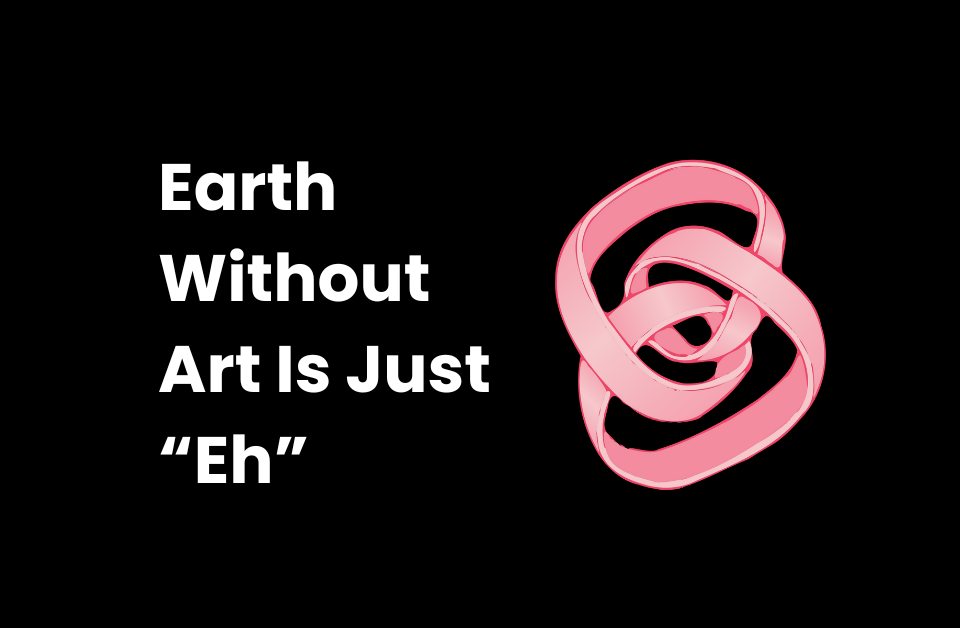
Earth Without Art
October 19, 2024PSA: It’s easier if you’re reading this on a death-bed, while high, or on the brink of self-destruction, or just a random Monday.
Do you have Gods for your gaps? – Pun intended!
The “God of the gaps” is a term coined to describe a particular theological move: attributing unexplained phenomena in science to the direct intervention of God. It’s basically humanity’s way of saying, “We don’t know how this works, so it must be divine magic.” This concept has roots that stretch deep into history, but it really got its modern shape during the Enlightenment, when science started stepping into God’s previously unchallenged territory.
So as you see from the get-go, it’s super f*cked up and simple. We don’t know how shit works, therefor, it must be god. Where there is a hole, there is a god!
The Argument for God of the Gaps
The argument goes something like this: “Look at these gaps in scientific knowledge! How could anything other than God possibly explain them?” Proponents of this idea believe that the existence of mysteries—like the origins of life, the fine-tuning of the universe, or even consciousness itself—is evidence of divine handiwork.
The appeal? It’s comforting. It gives purpose to uncertainty. It’s like the ultimate cosmic safety blanket: “We may not have answers, but God does, and that’s enough for now.”
It answers the tough questions. Why did my dad die? How my messy life is going to work out? see! Appealing!
Examples?
- In ancient times, people credited lightning to Zeus. (Spoiler: It’s actually atmospheric electrical discharge.)
- During the Middle Ages, diseases were often seen as punishments from God. (Turns out, germs don’t care about our mortal sins.)
- More recently, some point to the fine-tuning of universal constants as proof of divine calibration. (Science is still working on that one, but hey, multiverse theories are cooking.)
The Argument Against God of the Gaps
Honestly, babes, It’s a pretty shaky foundation to build your faith on, and here’s why:
- Shrinking Gaps: Science doesn’t sit still. What’s a mystery today could be common knowledge tomorrow. Remember when DNA was a mystical enigma? Now it’s the stuff of high school biology. I personally remember that atoms where the fundamental building blocks of the universe, and then they opened atoms up and a whole mess of crap came out. Then of course, we had to learn those.
- God as a Placeholder: Using God to explain what we don’t understand makes Him a placeholder, not a deity. It’s like hiring a temp worker to fill in the blanks. What happens when the temp—science—finishes the job? Are we gonna sack god? Give him another unpaid internship?
- Bad Theology: It’s not a great look for religion either. If God’s existence hinges on what science hasn’t figured out yet, what happens to faith when those gaps close? I know of no clergy man that is happy to only explain the unexplainable with god. They would usually have us explain the easily explainable scientific phenomena with god too.
- Logical Leap: Just because something is unexplained doesn’t mean it’s unexplainable. It’s like saying, “I don’t know how my phone works; therefore, it must be run by the Sandworms from Dune Universe.”
My Gaps Godly? I don’t think so. but I’m not sure.
The core problem is that it’s lazy thinking. It’s easier to say, “God did it,” than to do the hard work of investigation. But history shows that plugging God into the gaps doesn’t hold up well. The more we learn, the less room there is for a divine explanation of physical phenomena.
But that doesn’t mean God disappears entirely, babes.
Faith isn’t supposed to be about what’s unexplainable; it’s about what’s meaningful. And that’s a whole different conversation.
So What the F*ck Did You Just Read?
Smoke Something and Join the Conversation
If you’re leaning on the God of the gaps argument, you’re putting your eggs in a basket with a hole in the bottom. Sure, it might hold for a while, but eventually, science is going to patch that gap. It’s better to build faith on something that doesn’t crumble under the weight of new discoveries.
Now What?
In life, love, and theology, don’t let the unknown scare you into defaulting to easy answers. The beauty of mystery is that it invites exploration, not avoidance. And if you’re looking for God, maybe don’t just search the gaps—look everywhere else too.
If when looking for god, you looked within, and you’re at the stage of “I AM GOD, I HAVE THE BLOOD OF TIGERS”, and you are not Charlie Sheen, you’ve gone too far. Come back, babe. You’re not god, you’re just delulu.
If you didn’t understand this last part, and you’re not Charlie Sheen, watch this:
https://www.youtube.com/watch?v=znbR_VTDEtM
If you’re Charlie Sheen, you sir, are a national treasure. I know of some gaps you may be the actual god of.





